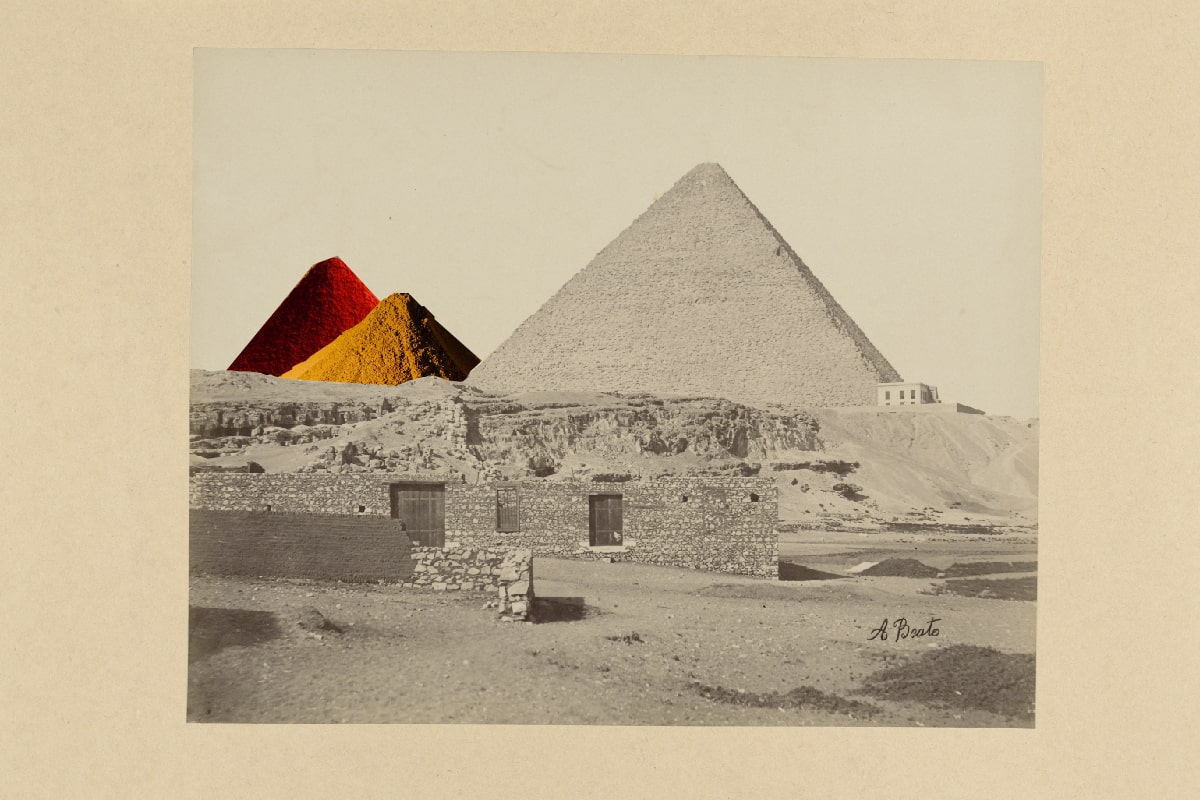
In ancient cultures, spices were used for flavouring food, in cosmetics and for embalming the dead. They were also thought to have medicinal and spiritual value.
They could only be grown in the tropical East, mainly in China, Indonesia and India, and the Moluccas. They were highly valued because of their rarity and their many medical, religious or spiritual uses.
Ancient Egypt
The historical use of spices was widespread across ancient cultures, as they were used for a variety of purposes. This included cooking, medicinal uses, as perfumes and even in embalming.
Ancient Egyptians were well-known for their culinary skills, and they relied on plants to make a variety of dishes, including breads and cakes. They also used wild vegetables such as onions, leeks, lettuces and celery to flavour their soups.
Their farming system depended on the Nile River, which was a vital source of food. The Nile Valley was fertile, and the predictable inundation of the river meant that it was possible to grow a large crop and store surpluses for winter.
The main economic activity of ancient Egypt was agriculture, mainly emmer wheat (Triticum dicoccum) and barley (Hordeum vulgare). This produced a rich harvest which could be stored for the winter months.
Ancient Greece
The historical use of spices is an interesting aspect of ancient cultures. Herbs and spices are natural products, and they were widely used in Ancient Greece to both flavor food and cure people.
The variety of herbs in the Greek countryside gave the Ancient Greeks the ability to create a wide variety of dishes with unique flavors. These tastes would be reflected in a famous quote from Hippocrates (460-377 BC), who is known for saying, “Let food be your medicine, and medicine be your food.”
In terms of foods, the Greeks mainly ate cereals such as wheat and barley. They also ate plenty of vegetables.
Fish was a popular source of protein and most islanders had access to fresh, local seafood, such as squid, octopus and prawns.
In fact, the majority of the Greek population lived on a simple diet consisting mainly of grain, vegetables and olive oil. However, on occasion, they ate meat such as mutton or pork. The meat was boiled and eaten with bread. Wine was also consumed in large quantities, but it was diluted with water rather than drunk straight up.
Ancient India
Spices have been used throughout ancient cultures for flavouring food, cosmetics, and embalming their dead. This is probably due to the fact that they were very inexpensive to acquire and can add a lot of flavour to food.
During the Indus Valley Civilization, the use of spices was highly prevalent. It was a culture that grew around 7000 years ago in the lands of modern-day India and Pakistan.
Its varying climatic conditions – high rainfall, hot and cold weather – encouraged the cultivation of various spices. As a result, Indian cuisine has always been very spicy!
During the Classic Age, the Indian subcontinent developed into one of the most creative civilizations in history. It was the birthplace of two major religions, Jainism and Buddhism, as well as a rich literary tradition.
Ancient China
Throughout history, spices have been used for medicinal purposes and as a perfume. They have also been a source of wealth and prestige for those with the means to purchase them.
Early cuneiform records indicate that a wide variety of aromatic plants were used in Mesopotamia. These included thyme, sesame, cardamom, turmeric, saffron, poppy, garlic, and cumin.
Many of these plants were harvested from forests and fields, and the resulting fragrant sands were sold as perfume. Others, like frankincense and myrrh, were pressed from the secretions of animals - especially wild cats and beavers.
By the 14th century, the spice trade was so lucrative that merchants sought to keep their sources secret. This was in part due to fear of competing traders, but it was also a way to raise prices. As a result, spices were not only the most expensive items in Europe's trade, but also a symbol of high social status. This changed the way people ate and how they saw themselves.
Frequently Asked Questions
What are the most important flavours in Thai cuisine?
Thai cuisine includes several distinct regional cuisines. There are five main types of Thai cuisine: Northern, Central, Southern and Eastern. Each region has its own unique flavour profile.
The most common flavours in Thai food are sweet, salty, sour, spicy, bitter, pungent, and nutty.
Thais value sweetness as it makes the food more enjoyable. Thai cuisine includes sweet ingredients like palm sugar (gulamelaka) or coconut milk.
Thailand's most popular food is sourness. Hot dishes can often be paired with sour foods. This helps to balance out the heat.
Thai food also includes spicy food. Thai dishes often use spices such as chili pepper, galangal or ginger root.
What is the difference between cooking with whole spices and using ground spices? Ground Spices?
There isn't any difference between cooking with whole spices and ground spices. All spices are ground after harvesting. This ensures that there are no differences in the quality of spices.
However, the price difference is substantial. Whole spices are more expensive due to the labour required for processing them. But the flavour is worth it.
Bulk purchases of whole spices can often get you additional discounts. For example, you might receive a discount if you buy an entire bag of cinnamon sticks.
This is true for cloves, ginger and cardamom. This can help you save money on spices if you buy them in bulk.
Ground spices are also more durable than whole spices. Ground spices lose their potency rapidly due to oxygenation.
The main reason we recommend whole spices over dried is that they can add lots of flavor to recipes.
You can make delicious curry using whole turmeric, instead of ground turmeric. You can also grind whole coriander leaves to make a spice mix for chicken dishes.
It takes time to grind spices. It makes sense to purchase large quantities of whole spices when you are buying them. That way, you won't run out of spices too fast.
Can Thai food contain cumin?
Cumin is the most used spice in Thai cuisine. In Thai cuisine, cumin is often mixed with garlic, ginger or coriander to create different flavours.
Stir-fries, soups, curries, and salads are all popular uses of cumin in Thai cuisine. Additionally, cumin is sometimes added to marinades, dressings and sauces. Cumin is a key ingredient in Thai food. However, there are many other spices.
Chilli peppers, garlic, ginger and fish sauce add unique spices and flavours to the mix. These spices can be combined in different ways to create authentic Thai dishes.
Cumin is a key ingredient in Thai cuisine and can be found in many of the traditional Thai dishes. The complex flavours of cumin add a special flavor to Thai cuisine. Cumin spices many Thai dishes and is an integral part of Thai cuisine.
By adding spices such as cumin to their dishes, chefs can create delicious and unique flavours that capture the essence of Thai cooking. So the answer to the question is yes - cumin is a critical component in many traditional Thai dishes.
Statistics
- According to Healthline, pink Himalayan salt is estimated to contain up to 84 minerals and trace elements, which gives the salt its special pink color. (spicecravings.com)
- According to the McCormick Science Institute, indigenous Indian spices were cultivated as early as the 8th century BC in the gardens of Babylon. (spicecravings.com)
- According to a recent survey, professional chefs and many home cooks use spices; usage has only continued to grow from 2011 to now. (hospitalityinsights.ehl.edu)
External Links
amazon.com
- Amazon.com. Spend less. Smile more.
- Amazon.com : Morton & Bassett Whole Nutmeg 1.9 Oz : Nutmeg Spices And Herbs : Grocery & Gourmet Food
en.wikipedia.org
penzeys.com
healthline.com
- Is Pink Himalayan Salt Better Than Regular Salt?
- Turmeric and Curcumin have 10 proven health benefits
How To
How do you store your cooking spices?
This article will show you how to store cooking spice for optimal performance. First, we must understand how food is stored.
Because spice's flavour is diminished by light exposure, it should be stored in airtight containers. This is due to oxidation which occurs when oxygen combines with organic compounds such as those found in spices.
To prevent oxidation of spices, keep them in dark cupboards. Spices lose their flavor quickly if these conditions don't exist.
It is the best way to preserve spices' flavours by keeping them out of direct sunlight.
You can flavor water by adding herbs and spices. Mix 2 teaspoons ground cinnamon with 1/2 cup of warm liquid and stir. Add a squeeze or lemon juice to the mixture and serve immediately.
Dry herbs and spices can also be used in soups, stews or casseroles. Simply sprinkle the spice mixture evenly over the dish and sit for 5-10 minutes before serving.
You can add leftover cooked vegetables, fruits, meats and shellfish to your favorite recipes as snacks.
To get the best flavours from fresh herbs and spices, cut them or tear them and add them to hot foods. You can also freeze spices and herbs by placing them in muffin cups or ice trays and freezing them. Once frozen transfer to zip-top plastic bags or freezer bags.
Resources:
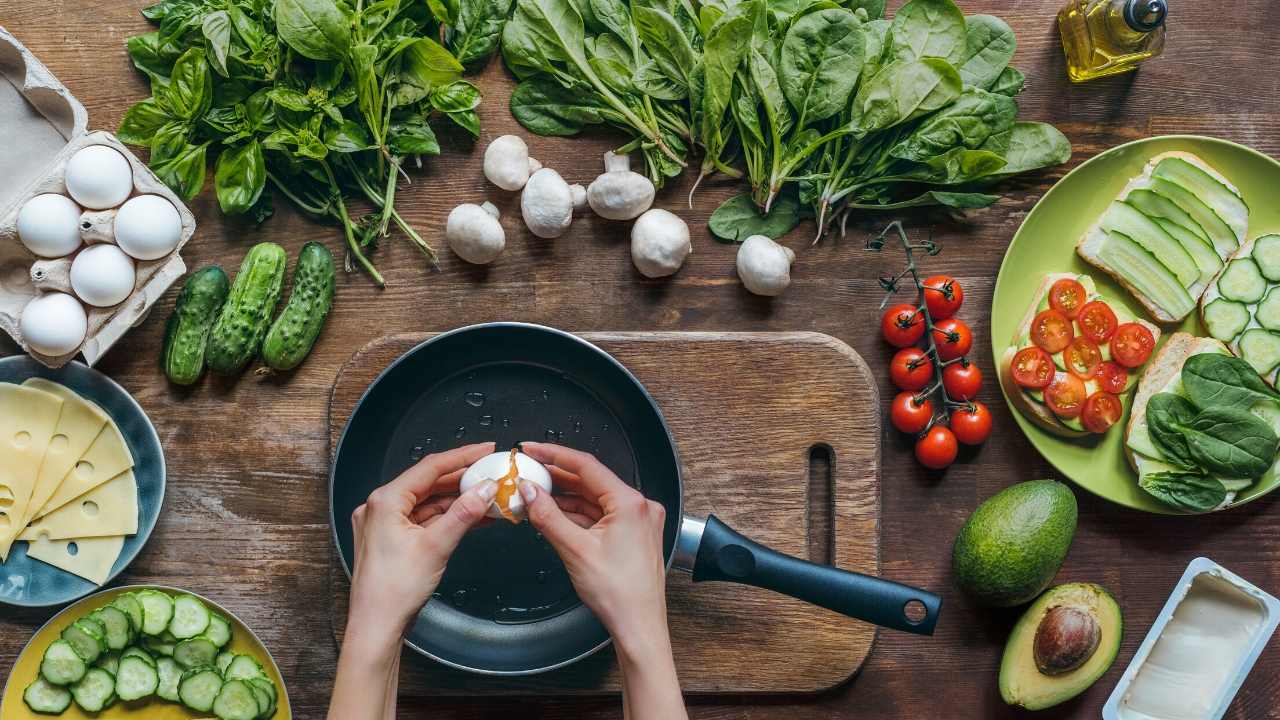 |
What Happens If You EAT WALNUTS Everyday For 30 Days? | Dr. Steven GundryIf you’re looking for a new snack, look no further than WALNUTS! These versatile, delicious, nutritious nuts are one of the best options to snack on to improve |
 |
2 Chefs Try to Identify Spices by Taste | Sorted FoodToday we flip the script and put our chef Ben and guest chef James in the hot seat to guess some spice blends! It’s absolutely a competition and we haven’t |
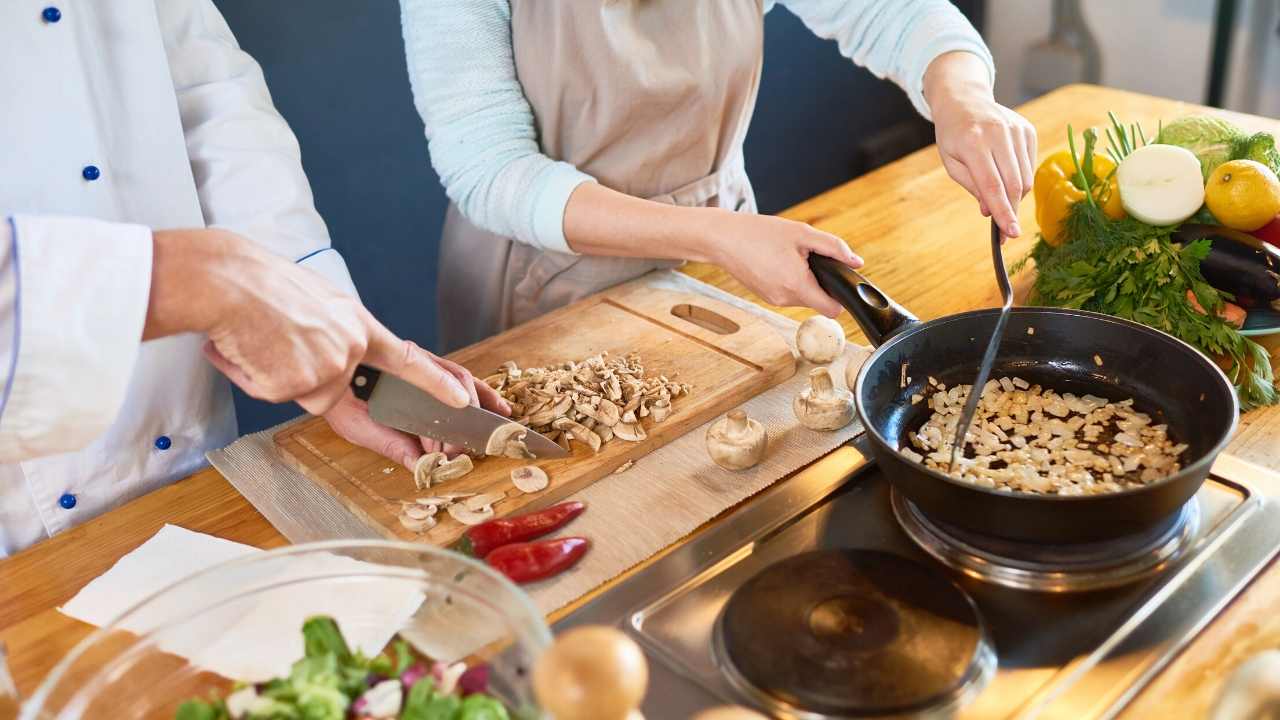 |
Why Did These Strange 1950s Inventions Kill So Many People?| Hidden Killers | Absolute HistoryDr Suzannah Lipscomb looks at the hidden dangers of the British post-war home. In the 1950s, people embraced modern design for the first time after years of |
 |
The 5 SURPRISING Vegetables You Need To Eat To STAY HEALTHY! | Dr. Steven GundryWe are taught that all vegetables are healthy for us. Dr. Gundry says that is FALSE and not all vegetables are built the same! That’s why he’s here to share |
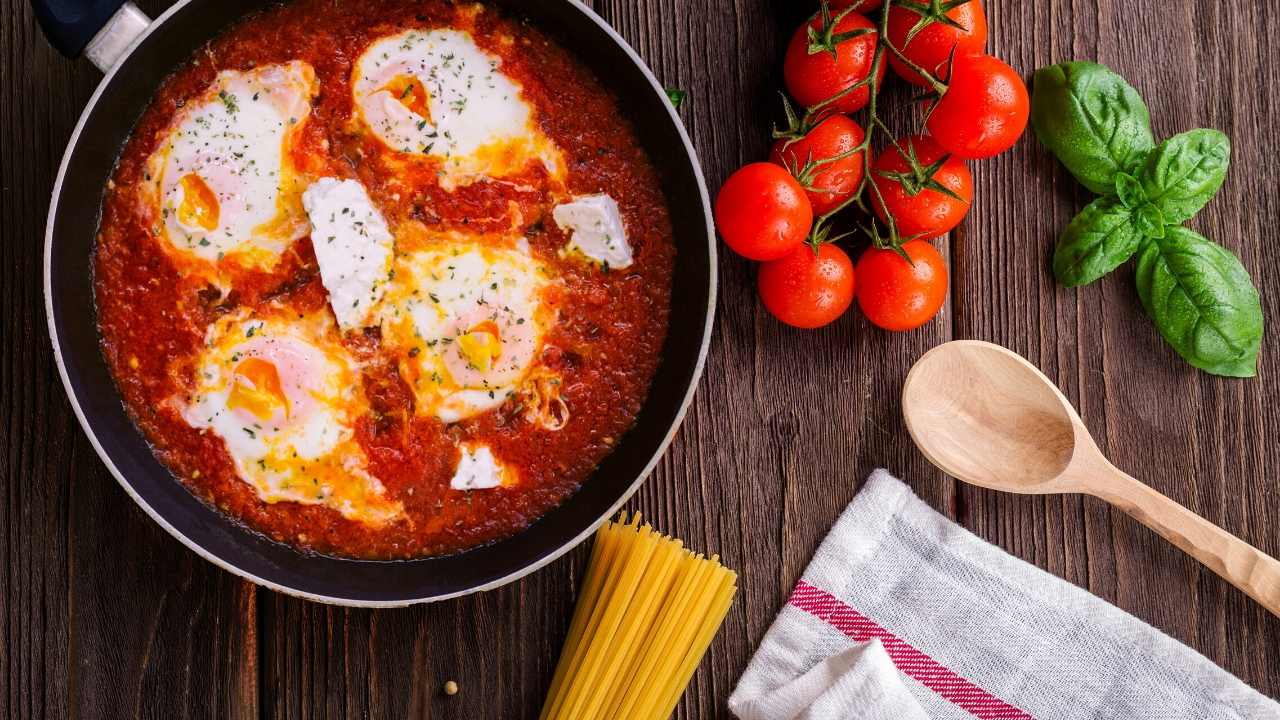 |
The SHOCKING Superfoods You Should NEVER EAT! | Dr. Steven GundrySuperfoods - we’ve all heard about them but what are they really? On today’s episode Dr. Gundry dives right into the superfoods you should and should NOT |
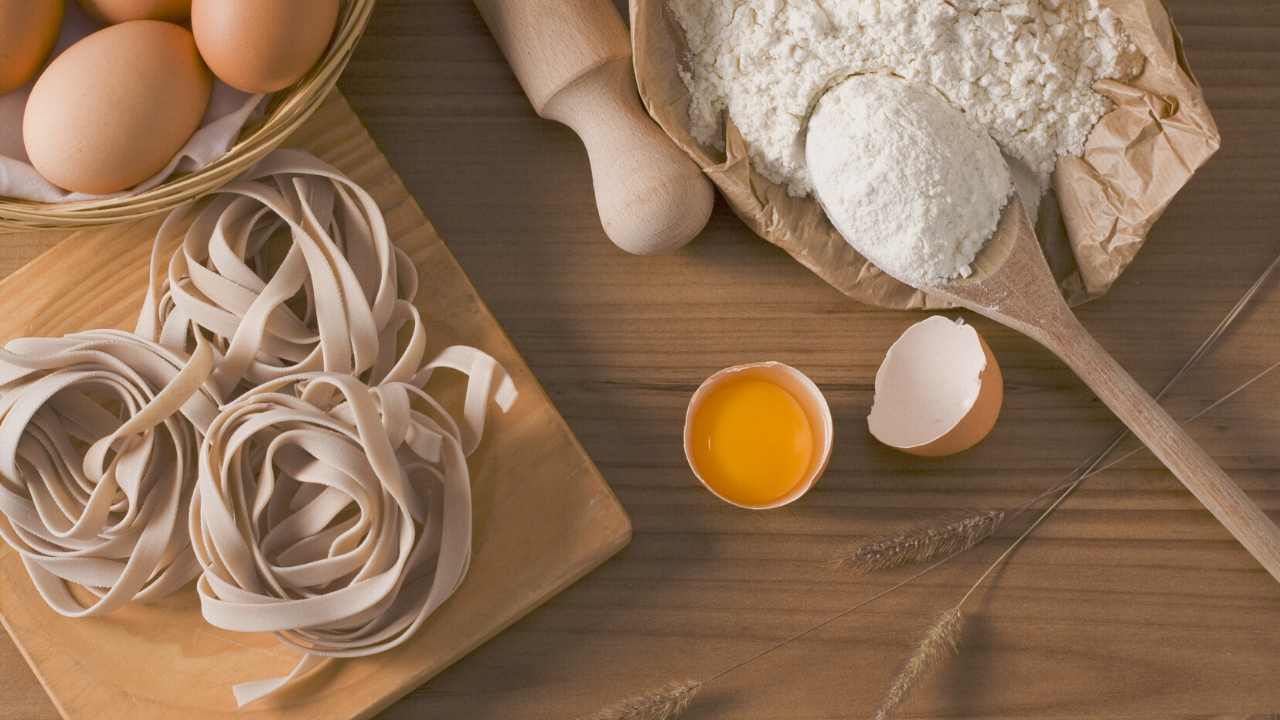 |
Spice Expert Guesses Cheap vs Expensive Spices | Price Points | EpicuriousIn this episode of 'Price Points', Epicurious challenges spice expert Ethan Frisch of Burlap & Barrel to guess which one of two spices is more expensive. Ethan |
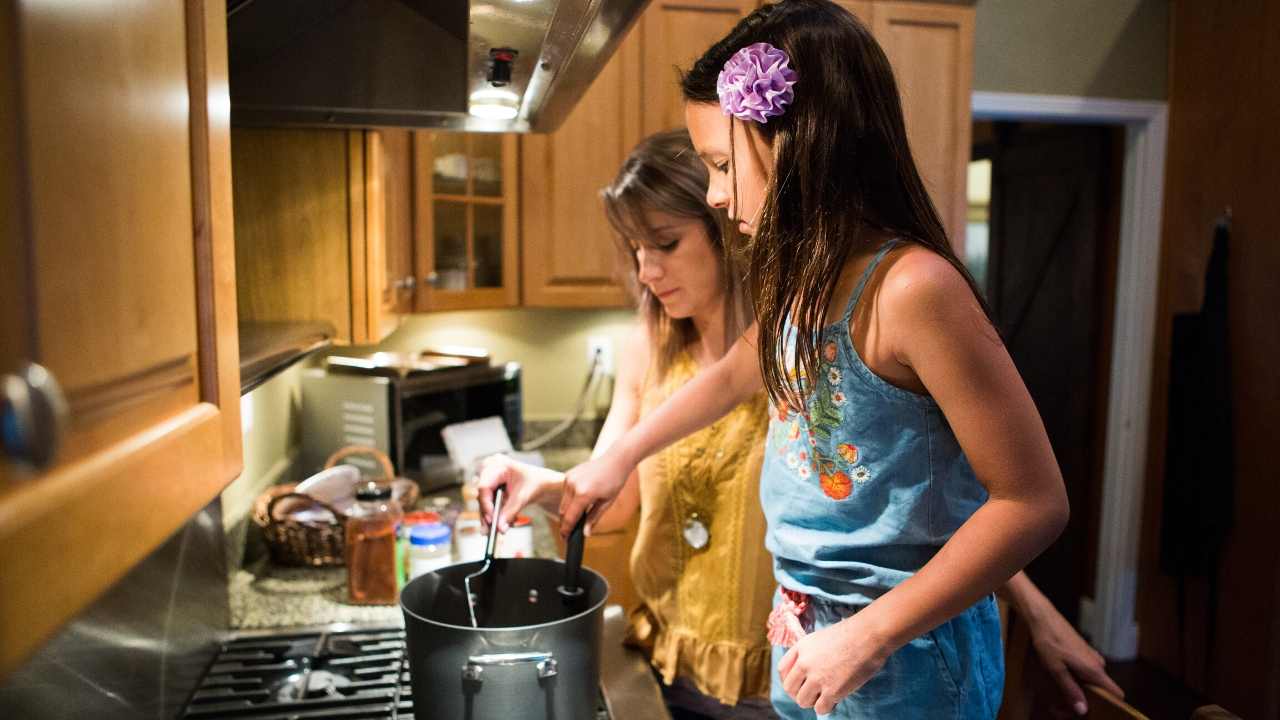 |
Are Burger King''s Spicy Chicken Fries TOO Hot?For a limited time, Burger King has released their new Spicy Chicken Fries! Featuring a blend of spices added to their classic Chicken Fries, I'll find out how |
 |
Spice - Wikipediadefinition of spices |
 |
How Did Nutmeg Cause Wars In Indonesia? | The Spice Trail | Absolute HistoryKate Humble embarks on a journey around the fabled spice islands of eastern Indonesia in search of two spices that launched epic voyages of discovery, caused |
 |
Learn Every Single Technique For Using Spices in One DishShop the gear in this video (and more) at ProHomeCooks.com ➡️ https://prohomecooks.com/ Getting your kitchen gear from Pro Home Cooks supports more content |
 |
The SHOCKING BENEFITS of Spices On Your Health! (Take One Teaspoon Of This) | Dr. Steven GundryWe all use spices to cook, but did you know that they can be a great tool to incorporate more beneficial polyphenols into your diet? That’s right, with just |
 |
Poultry Seasoning For TurkeyIf you're looking to spice up your turkey meals, you should consider putting poultry seasoning on your bird. Not only is it a great way to add some.. |
 |
Delicious Seasonings to Add Flavor to Your DishesIf you're looking for delicious seasonings to add to your dishes, you're in the right place. There are many options out there, from chili powder to.. |
 |
How to Add Spices to Mac and CheeseThere are a number of spices that you may want to try out when cooking mac and cheese. Some of these ingredients include red peppers, oregano,.. |
 |
Chaat Masala and Garam MasalaChaat masala is a type of spice mix that is used to flavor chaat. It is made from several spices, such as cumin, dried ginger, coriander, asafoetida, |
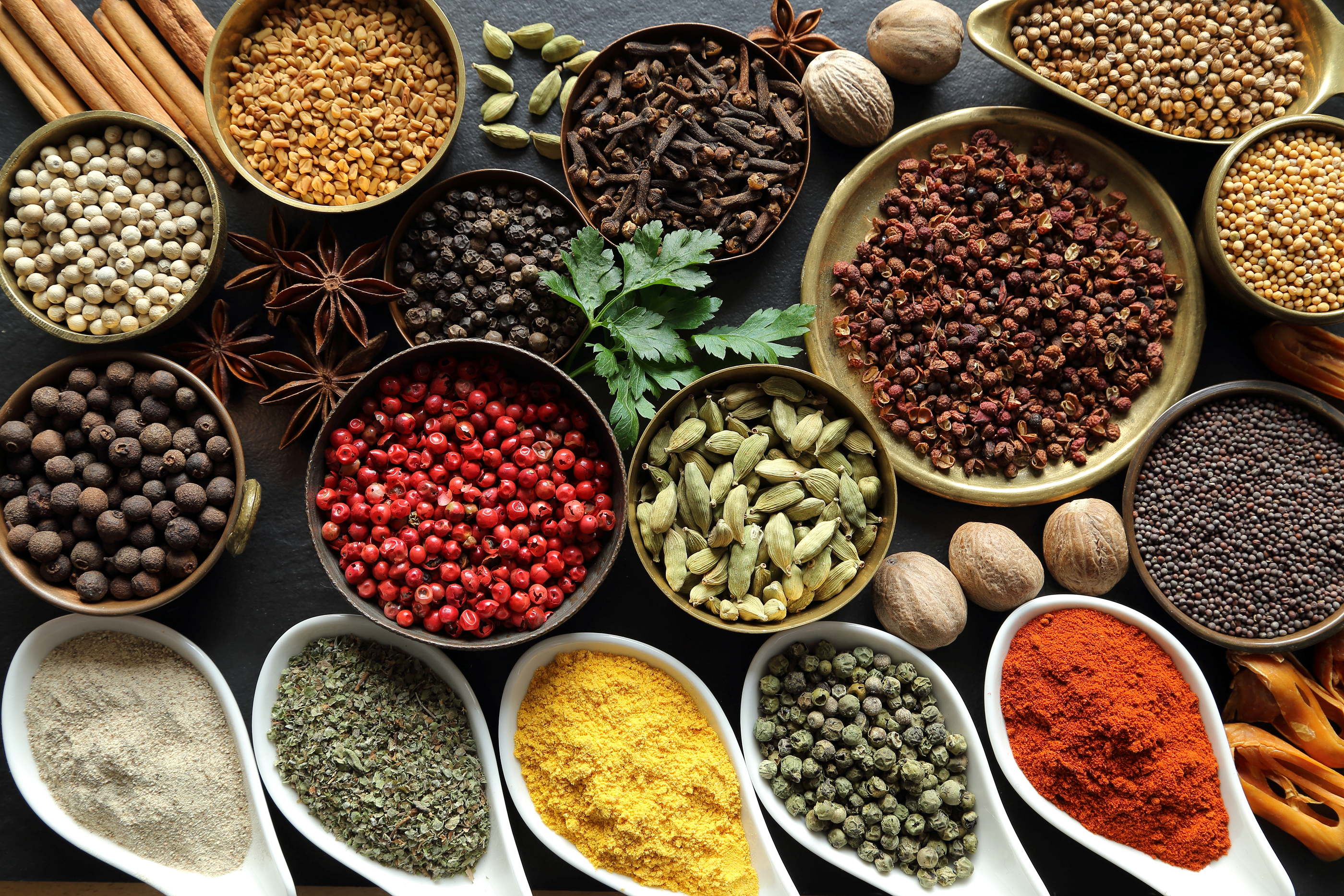 |
27 Essential spiecs you need to knowImportant spices in cooking |
 |
No Salt Seasoning BlendsIf you want to make the perfect grilled chicken or steak, it's time to try a no salt seasoning blend. It's the best way to add flavor to any dish.. |
 |
Coriander Ground Vs Coriander WholeCoriander is one of the most popular herbs used for cooking and can be either whole or ground. Its taste is very mellow, and is perfect for adding a.. |
 |
Homemade Blackening SeasoningMaking your own homemade blackening seasoning is a great way to add flavor and freshness to your dishes. This spice mix can be used in a variety of.. |
 |
Sweet Potato RavioliSweet potato ravioli is a popular pasta dish that is very easy to make. The recipe uses sweet potato as the filling and makes a light and filling.. |
 |
Greek SeasoningGreek seasoning is a common spice used in many types of dishes. For example, it can be used as a dry rub on chicken wings before baking, or it can be |
 |
AbgooshtAbgoosht is a hearty Persian soup that is made from mutton. It is a traditional stew that is thickened with chickpeas. It is also known as Dizi... |
 |
Greek Cabbage RollsOne of the most popular dishes you can find on the menu at Greek restaurants is cabbage rolls. They are a great option when you're on the go and need |
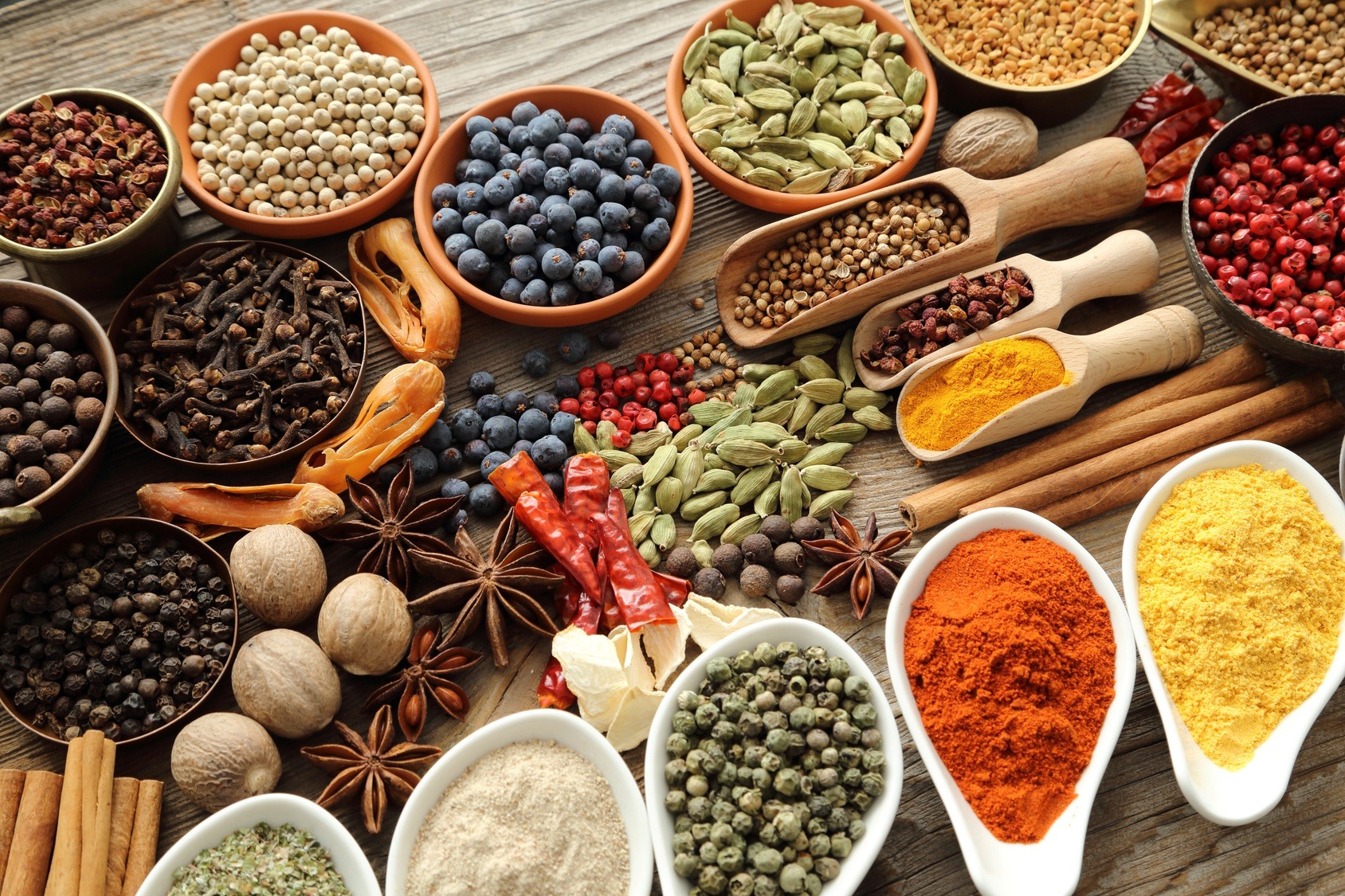 |
Your Herbs and Spices Guides & BlogsHerbs, spice & everything nice, these blog and articles explain the many uses of spices, including spices for weight loss, spices for brewing, and how to store |
 |
Mexican Cauliflower Rice RecipeIf you have been looking for a healthy meal option, you can try making Mexican cauliflower rice. This delicious recipe combines a blend of vegetables, |
 |
A Guide to Indonesian FoodIndonesia is an archipelago country and its cuisine is a mix of regional culinary traditions. Its dishes include sweet and savory dishes, based on.. |
 |
How to Make Homemade Spaghetti SauceSpaghetti is a very popular Italian dish that is made from durum wheat semolina. It is also often enriched with vitamins and minerals. Some people.. |
 |
How to Prepare a Chicken on Skewer RecipeIf you're looking to cook up a tasty meal for the family, why not try out a chicken on skewer recipe? This is a fast, easy dish that your whole.. |
 |
Powdered SpicesThe ingredients for powdered spices are usually either individually roasted or are a combination of a variety of different spices. These include.. |
 |
Air Fryer Chicken ParmesanIf you want to find a delicious and quick way to cook your favorite chicken dishes, try using an air fryer. The results are fantastic and are sure to |
 |
What Type of Cardamom Should You Use in Your Cooking?Cardamom is an ancient spice, used for centuries in the kitchen. When you're using cardamom in your cooking, there are a few things you should know... |
/spices-5689d3013df78ccc1533efad.jpg) |
The Chopping Block Cooking Blog | spicesspices | Visit our blog for recipes, cooking tips and techniques as well as our staff's favorite eats and travel adventures. |
 |
Lasagna SpicesFor people who enjoy lasagna, there are a variety of spices to choose from. Some of the spices include paprika, cayenne pepper, thyme, and fresh.. |
 |
Italian Dressing RecipesIf you are looking for a new way to dress your favorite dishes, you may want to try one of the many Italian dressing recipes out there. These.. |
 |
VIETNAM BUSINESS NEWS OCTOBER 13 - PepperHCMC economy gains strong growth in Jan-SeptGross regional domestic product (GRDP) of HCMC between January and September reached nearly VND1,100 trillion in |
 |
SALMONELA - EU strengthens measures against brazilian pepperAt the beginning of October the European Spice Association inssued a letter direcyed to it members,stating that EU Commision will strengthen the rules on |
 |
Cloves Market Latest NewsRoyal Golden's Cloves Market Latest NewsBy Parsram DhiraniMadagascar - With weeks of slow progression of incoming new crop from field, goods are now |
 |
Important Report - Brazilian Pepper ContractsSince the middle of November when the rainy season finaly came to Brazil, bad weather and heavy rains are threatening Pepper production areas disrupting |
 |
BRAZIL - PEPPER PRODUCTION SUFFERING BAD WEATHERPARTIALLY FLOADED PEPPER PLANTATION IN LINHARES - ESThe heavy and constant rains that have been happening non-stop for more than a month are hampering the |
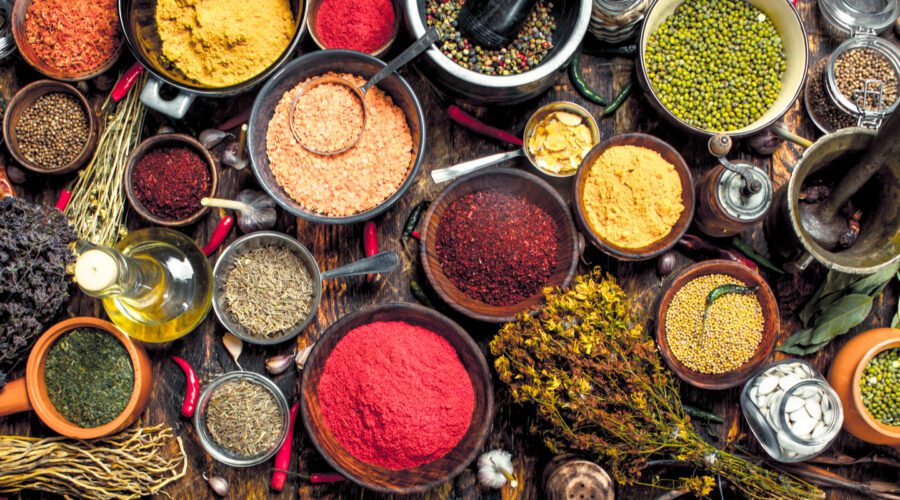 |
Spice Talk - Spice Station - New Ideas for Cooking with Spices!This spice blog writes about Indian fenugreek, Canadian coriander, Egyptian dill weed, Syrian Aleppo pepper, Granada nutmeg, & more from around the world. |
 |
CARDAMOM - Guatemala in line to export around 55,000 MT for the 22-23 SeasonPlease read the short report/comment we received of an operator ofCardamom in GuatemalaHello friends, looking forward to seeing you again next week, wanted to |
 |
UPDATE - VIETNAM PEPPER PRICES FEB 22February 22, 2023|Black Pepper Offers, Vietnam Market Update This week, China is buying slowly, people expect the price will come down a little bit but today, |
 |
Vietnam Pepper exports hit 129 million USD in first two monthsVietnam exported over 41,000 tonnes of pepper worth 129 million USD in the first two months of this year, up 35% in volume, but down 7.4% in value over the |
 |
GLOBAL MARKET OVERVIEW GARLICMarch 2023FreshPlaza.comThe global garlic market is experiencing mixed fortunes, according to recent reports from around the world. In the Netherlands, demand |
 |
Vietnam Pepper market update 13th March 2023 – Week 10.- Pepper price has had an impressive increase in 2023 with an increase from 61,000vnd from January 1, 2023 to 67.000vnd until March 12, 2023, corresponding to |
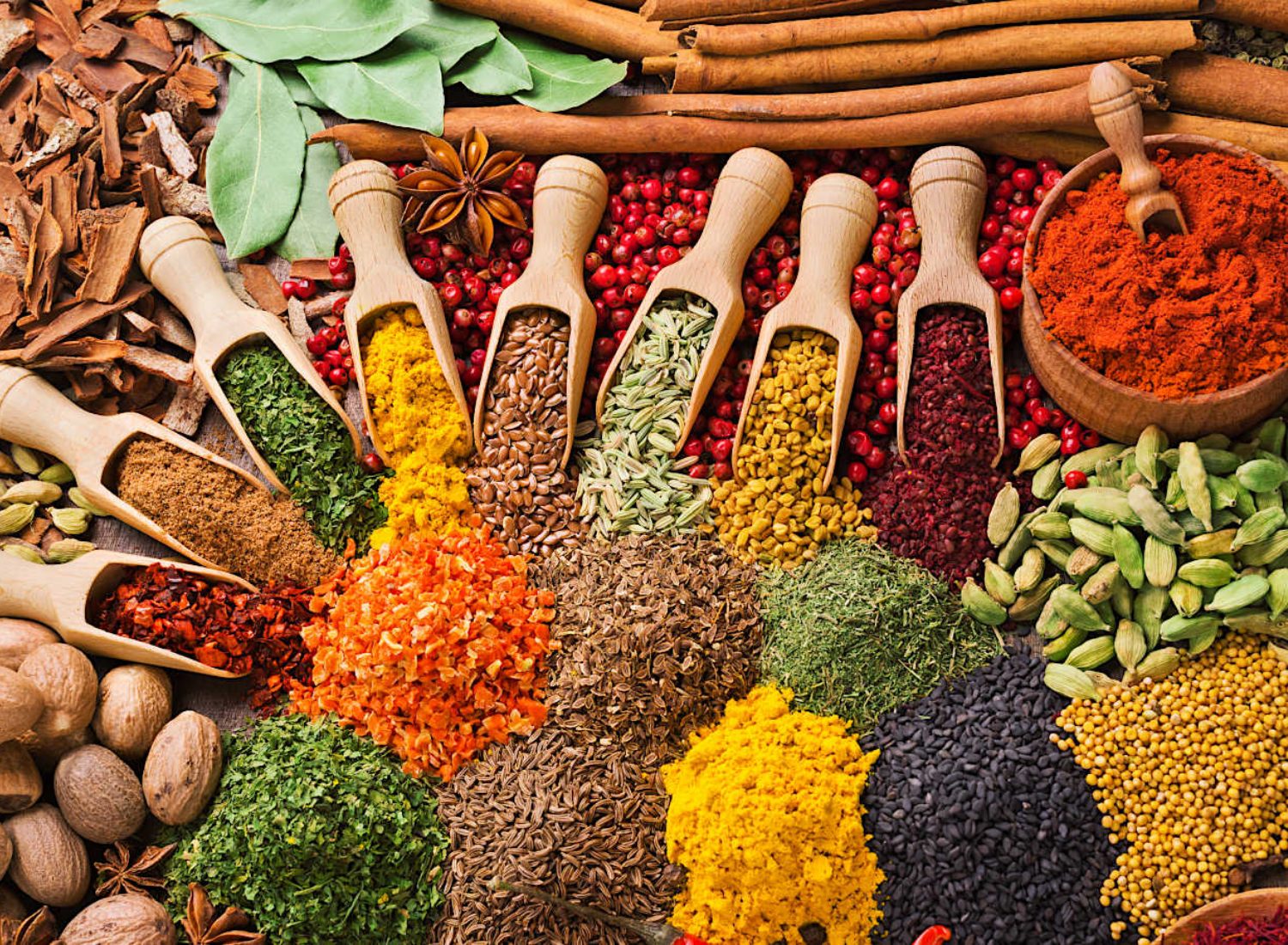 |
Blog | Herbs Spices and Seasonings | High Quality | World of SpiceWorld of Spice is your online store for a massive range of High Quality Herbs Spices and Seasonings. Wholesale, Foodservice and Catering High Quality Herbs |
.png)





